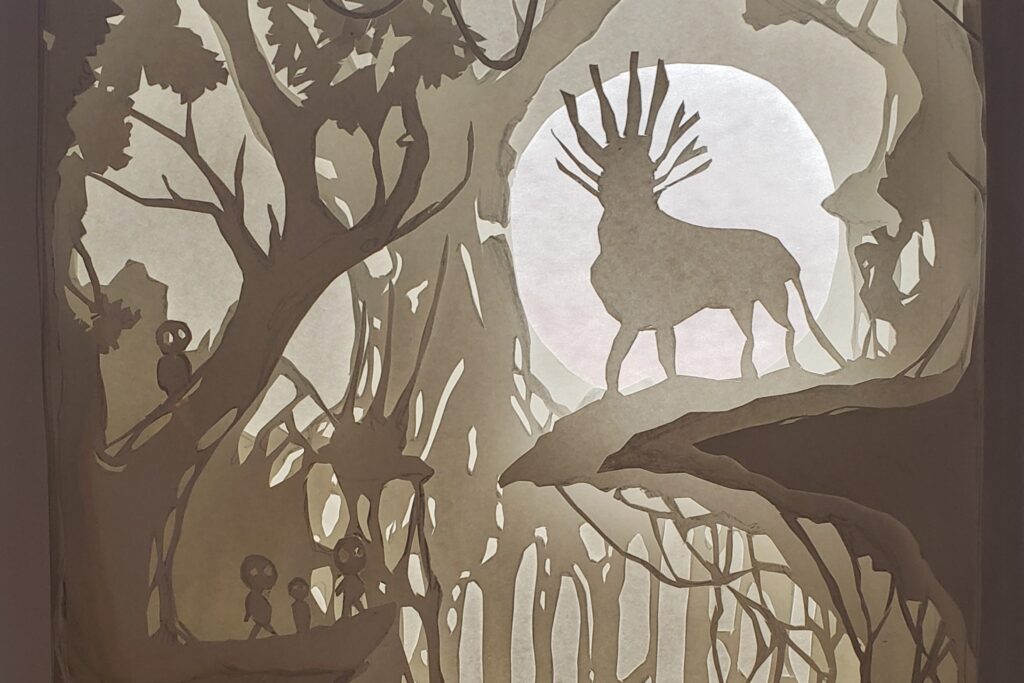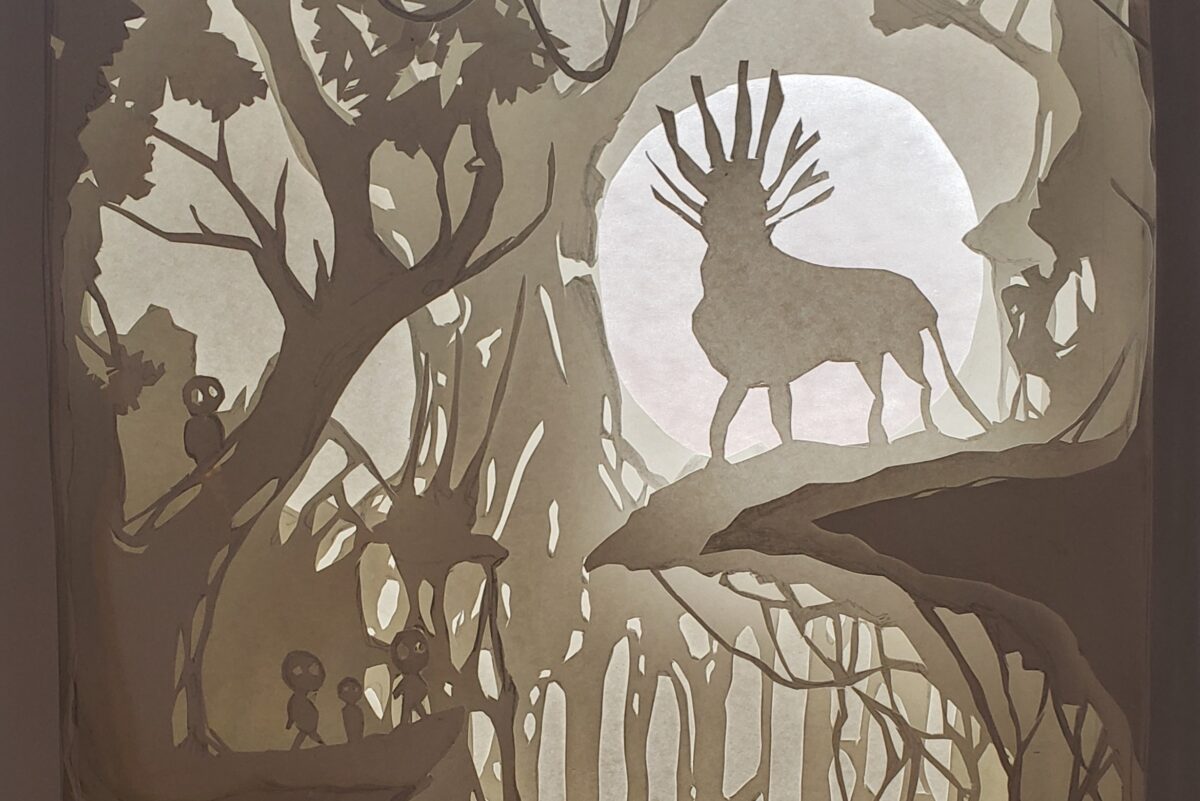
As we welcome the new year, our thoughts often turn to our hopes. We wish for joy and peace, for ourselves, our families, communities and the world. When we look out into the world, we never find a shortage of suffering, but this year in particular, I have noticed a quickening of the pace of suffering. Coming after the challenges of the pandemic, natural disasters, and the war in Ukraine, the scale of the loss of innocent life in Israel and Gaza these past few months has still been shocking to many. While the well of human suffering is deep, the scale of loss is really beyond our comprehension.
And while this violence may be physically distant from my own community, I see many people around me struggling greatly. Checking in with friends and family, so many have been weighed down, asking themselves, how do we go on in the face of senseless loss? As the world seems to break around us, it can be difficult to really hold on to hope that the world will know peace and joy in this new year. We may feel that we should be able to do something, to make a difference, but that we have no power to lend meaningful aid. In a real and acute way, it has felt to me like watching as someone I care about, someone I love, drowns.
At the same time, my heart goes out to those who feel the urgency of the moment. And who push for action, channeling our despair into outrage and activism. Online, I have seen people calling out Buddhists and practitioners of other religions, essentially arguing that we should feel guilty for our spiritual practice at this time. Some parts of the argument seems to be that we should be ashamed of our comfort while others suffer.
This impulse, the feeling that we must act – that we are obliged to act – resonates with me. After all, if we acknowledge the truth of interconnection, then even suffering that seems distant is part of our own life. Our actions have an impact, no matter how small. So, it may feel selfish, heartless, to be comfortable here sitting on our cushions.
Part of this reasoning strikes me as compelling: I do feel that the urgency of the moment. And yet, I worry about what we should actually do, as we get up from our cushion. If shame and outrage are our calls to action, will we be able to step forward without anger? If not, I worry that any action we take may just reinforce the conflict. Anger and guilt are compelling forces, but they do not seem to tools that are well suited to build peace.
Like wielding a blade with no handle – how could we not injure ourselves even as we try to protect others?
I do think that we are called to lend our strength to others in need. As the bodhisattva vows says, “Beings are numberless, I vow to free them.” And I see that the challenge is to see clearly if our efforts are actually helpful, to know what freedom means for all beings. And how to free any being without undermining the very peace that we hope for.
As I have thought about how to aim my own efforts towards peace, without falling into paralysis or outrage, I have found inspiration in the character of Prince Ashitaka (from Hayao Miyazaki’s beautiful film, Princess Mononoke). Dealing with a curse that falls on him early in the film, Prince Ashitaka is propelled into the middle of a conflict between forces pushing for industrialization on the one hand, and to preserve the natural world on the other.
Prince Ashitaka is a skilled fighter, and could very likely have decided the outcome if he had chosen to align himself with one cause. But, Ashitaka refrains from taking sides, and focuses on seeing clearly what is going on, and helping all beings as best he can. This confuses everyone around him, and at one point in the film, a villager asks, “Just whose side is he on anyway?” It can be just as difficult for us today to imagine that a person could be committed to the welfare of the community as a whole, rather than their own interests, or those of their allies.
And, Ashitaka is not paralyzed by despair at the profound suffering all around him, and nor is he driven to hate and anger by the injustice in the world around him. What a delicate balance this is, to use whatever skills, talents, and privilege that we have to benefit all beings instead of serving our own interests. While Ashitaka is a fictional character, I think that the model that Miyazaki has shown us is a powerful one. It is important for us to clearly imagine what it would look like to act selflessly for peace. I think that the world would benefit if we all could carry this spirit into our own lives.
Of course, even if we do, what this effort would look like will differ for each person according to their situation. In the fictional story of Princess Mononoke, Prince Ashitaka was able to have a strong impact on the world – he found himself in a position that offered great leverage over the events around him. Part of that came from his position as an outsider, with few ties of loyalty to the parties involved. He was also a skilled warrior who had the resources to travel on his own. We may not find ourselves in a similar position, able to change the course of conflicts in the world or to even to make a major impact on an important decision in our community.
But, we can aspire to see clearly where are standing, and hope that we use whatever leverage that we have to the benefit of not just ourselves, but for the whole world. As we start this new year, that is my hope. Not that the world will be peaceful, in some permanent or final way, but that each of us will act as best we can to lend our aid to those in need.
Beyond fiction, I would also offer this quote to you, from Shohaku Okumura’s commentary on Dōgen’s Genjōkōan:
“… if we consider peace a condition in which there is no war among countries, no fighting or conflict among people, and no pain, anxiety, or struggle in our minds, there will probably never be a time when such a condition can be completely achieved. Does this make peace a meaningless dream? Not at all. According to Dōgen, our efforts to achieve peace are themselves a source of peace in each moment of each step we take toward peace.”
Shohaku Okumura, Realizing Genjokoan
Happy New Year to each of you, and I wish that you take steps to nurture peace and find joy this year.
